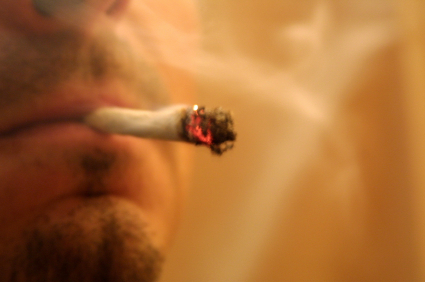Possession of cannabis, generally referred to a marijuana, is a criminal offense in Illinois. The criminal charge of possession of cannabis is set forth in 720 ILCS 550/1 et seq, the Illinois Cannabis Control Act.
While other states have decriminalized cannabis, Illinois has not. To decriminalize possession of cannabis is to say that it is unlawful to possess it, but possession is not an offense for which the defendant can be sentenced to jail or prison. Jail is a possibility in Illinois courts.
Municipalities across the United States are decriminalizing cannabis, but how can they do this when state law says possession is a criminal offense? The answer is that municipalities supporting decriminalization have passed ordinances making the offense a ‘low priority’ for law enforcement. Police are choosing not to prosecute.
Possession of cannabis in Illinois is classified in the following way:
- 2.5 grams or less is a Class C misdemeanor. A Class C misdemeanor is the lowest grade of criminal offense in the state, punishable by 30 days jail and a fine of $1,500. The defendant is eligible for supervision, and that can be expunged. State law requires the defendant to be assessed $200 in addition to fines and costs.
- 2.5 to 10 grams is a Class B misdemeanor. The penalties for a Class B misdemeanor include 180 days in jail and a fine of $1,500. Supervision is available. The statute imposes a mandatory assessment of $200.
- 10 to 30 grams is a Class A misdemeanor, which is the highest grade of misdemeanor offense. Class A misdemeanor offenses in Illinois have a sentence of up to one year in jail and a fine of $2,500. Supervision is available, and the defendant can have this record expunged. A statutory assessment shall be imposed of $300.
- 30 to 500 grams is a Class 4 felony, which carries 1-3 years in prison (Department of Corrections) and a possible fine of up to $25,000. Provided the defendant is a first offender, supervision is available through special probation (felony supervision under Section 10 of the Cannabis Control Act). A record of this special probation can be expunged. This special probation is referred to as 410 probation because that is the statute providing the same probation for first offenses of possession of a controlled substance. Prosecutors, judges, and defense attorneys seem to call it the same thing. The statutory assessment is $500.
- 500 to 2,000 grams is a Class 3 felony offense carrying a possible 2-5 years prison and a fine of $25,000.
- 2,000 to 5,000 grams is a Class Class 2 felony. This offense has a possible sentence of 3-7 years prison and a $25,000 fine.
- 5,000 grams or more is a Class 1 felony for which the sentencing range is 4-15 years prison.
The defense analysis of a possession case must always ask: how did the police find the cannabis in the first place? There is almost always a search of a vehicle or a frisk (i.e., pat-down) of the defendant’s person. In each case, the police must have probable cause to search or a reasonable belief that the defendant may be armed to frisk.
The next issue in the defense analysis is how the Confrontation Clause comes into play. The defendant has a right to confront the witnesses against him in court, including the laboratory scientist who tested the cannabis to determine that it was, in fact, cannabis. Will these witnesses show up for trial?
And finally, where is the proof that the defendant actually possessed the cannabis? If the bag was in his pants pocket, then the answer may seem clear. But what if the bag of cannabis was on the floor of a vehicle in between the driver and three passengers?
The answers to these questions are best provided by local counsel. If you were arrested for possession of cannabis, you should consult with a local attorney who knows local practices.
For example, in Cook County, drug school is offered as part of a deferred prosecution. If drug school is completed, then the charges are dismissed. It is highly unlikely that the laboratory scientist who tested the cannabis will appear to testify.
But in DuPage County, the lab technician will almost always show up. There is no drug school in DuPage, and at the time of this article, the State’s Attorney does not offer supervision.
In Lake County, on the other hand, the State offers supervision.


